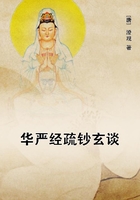THE SYSTEM OF THOSE LAWS WHICH REQUIRE PUBLIC PROMULGATION.
THE PRINCIPLES OF RIGHT IN CIVIL SOCIETY.
43.Definition and Division of Public Right.
Public right embraces the whole of the laws that require to be universally promulgated in order to produce juridical state of society.It is therefore a system of those laws that are requisite for a people as a multitude of men forming a nation, or for a number of nations, in their relations to each other.Men and nations, on account of their mutual influence on one another, require a juridical constitution uniting them under one will, in order that they may participate in what is right.This relation of the individuals of a nation to each other constitutes the civil union in the social state; and, viewed as a whole in relation to its constituent members, it forms the political state (civitas).
1.The state, as constituted by the common interest of all to live in a juridical union, is called, in view of its form, the commonwealth or the republic in the wider sense of the term (res publica latius sic dicta).The principles of right in this sphere thus constitute the first department of public right as the right of the state (jus civitatis) or national right.2.The state, again, viewed in relation to other peoples, is called a power (potentia), whence arises the idea of potentates.Viewed in relation to the supposed hereditary unity of the people composing it, the state constitutes a nation (gens).Under the general conception of public right, in addition to the right of the individual state, there thus arises another department of right, constituting the right of nations (jus gentium) or international right.3.Further, as the surface of the earth is not unlimited in extent, but is circumscribed into a unity, national right and international right necessarily culminate in the idea of a universal right of mankind, which may be called Cosmopolitical Right (jus cosmopoliticum).And national, international, and cosmopolitical right are so interconnected, that, if any one of these three possible forms of the juridical relation fails to embody the essential principles that ought to regulate external freedom by law, the structure of legislation reared by the others will also be undermined, and the whole system would at last fall to pieces.
I.Right of the State and Constitutional Law.
(Jus Civitatis).
44.Origin Of the Civil Union and Public Right.
It is not from any experience prior to the appearance of an external authoritative legislation that we learn of the maxim of natural violence among men and their evil tendency to engage in war with each other.Nor is it assumed here that it is merely some particular historical condition or fact, that makes public legislative constraint necessary; for however well-disposed or favourable to right men may be considered to be of themselves, the rational idea of a state of society not yet regulated by right, must be taken as our starting-point.This idea implies that before a legal state of society can be publicly established, individual men, nations, and states, can never be safe against violence from each other; and this is evident from the consideration that every one of his own will naturally does what seems good and right in his own eyes, entirely independent of the opinion of others.Hence, unless the institution of right is to be renounced, the first thing incumbent on men is to accept the principle that it is necessary to leave the state of nature, in which every one follows his own inclinations, and to form a union of all those who cannot avoid coming into reciprocal communication, and thus subject themselves in common to the external restraint of public compulsory laws.Men thus enter into a civil union, in which every one has it determined by law what shall be recognized as his; and this is secured to him by a competent external power distinct from his own individuality.Such is the primary obligation, on the part of all men, to enter into the relations of a civil state of society.
The natural condition of mankind need not, on this ground, be represented as a state of absolute injustice, as if there could have been no other relation originally among men but what was merely determined by force.But this natural condition must be regarded, if it ever existed, as a state of society that was void of regulation by right (status justitiae vacuus), so that if a matter of right came to be in dispute (jus controversum), no competent judge was found to give an authorized legal decision upon it.It is therefore reasonable that any one should constrain another by force, to pass from such a nonjuridical state of life and enter within the jurisdiction of a civil state of society.For, although on the basis of the ideas of right held by individuals as such, external things may be acquired by occupancy or contract, yet such acquisition is only provisory so long as it has not yet obtained the sanction of a public law.Till this sanction is reached, the condition of possession is not determined by any public distributive justice, nor is it secured by any power exercising public right.
If men were not disposed to recognize any acquisition at all as rightful- even in a provisional way- prior to entering into the civil state, this state of society would itself be impossible.For the laws regarding the mine and thine in the state of nature, contain formally the very same thing as they prescribe in the civil state, when it is viewed merely according to rational conceptions: only that in the forms of the civil state the conditions are laid down under which the formal prescriptions of the state of nature attain realization conformable to distributive justice.Were there, then, not even provisionally, an external meum and tuum in the state of nature, neither would there be any juridical duties in relation to them; and, consequently, there would be no obligation to pass out of that state into another.
45.The Form of the State and its Three Powers.















